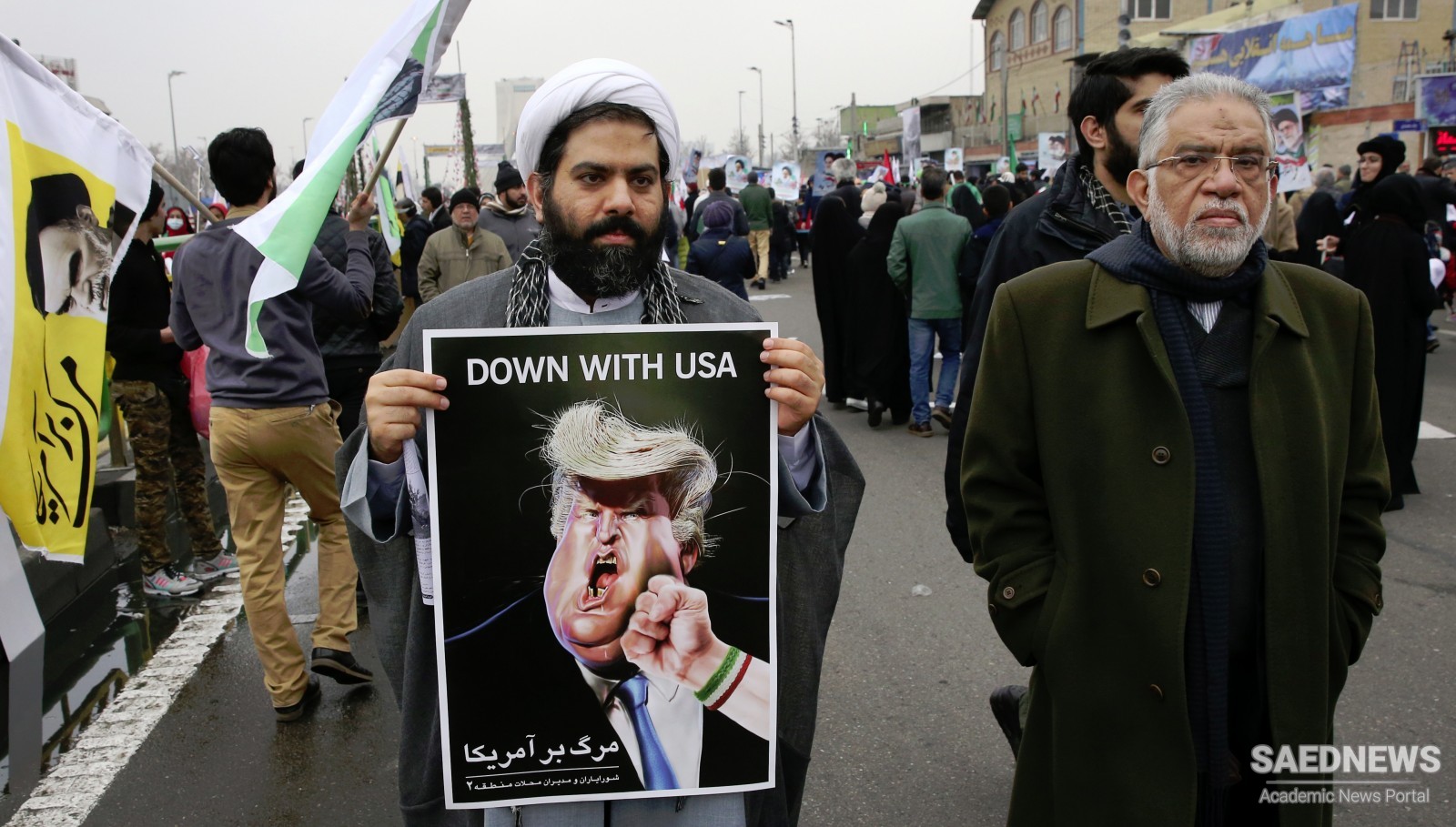It opened the way for authentic Islamic doctrinal struggle, and further intensified the struggle of the committed Muslim militants both inside and outside Iran. The struggle continued on this path until finally the discontent and intense anger of the people as a result of internal pressure and state suppression on the one hand, and, on the other hand, the exposure of these actions at the international level through the actions of the clerics and the students, seriously weakened the foundations of the regime. Inevitably, the regime and its masters were forced to reduce the level of pressure and oppression and at least gave the impression of allowing political openness in the country; they had assumed these measures in hopes of preventing their inevitable downfall. But the agitated, conscious, and determined nation, under the decisive and unwavering leadership of Imam, continued with its unified uprising in a broad and inclusive manner.
On the 17 of Day 1356 [7 January 1978] the regime’s publication of an article insulting the holy honor of the clerics and Imam Khomeini in particular accelerated the movement and led to the volcanic explosion of anger across the nation. The regime tried to silence this uprising with bloodshed and violence, but this only caused more blood to gush into the veins of the Revolution. The renewed surge of fervor on every 7th and 40th memorial for the martyrs of the Revolution gave new life and an ever-increasing and unified warmth and vitality to this movement across the country. As people persevered, all the nation’s institutions were invigorated and took an active part in toppling the despotic regime through all-inclusive strikes and participation in street demonstrations. The widespread unity of men and women, from all social, religious, and political strata, was decisive. Women in particular had a visible and active presence at all the stages of this great campaign (jehād). Images that showed a mother embracing her child rushing toward the battleground and the barrels of machine guns were illustrative of the decisive and essential role that this great segment of society played in the struggle.
The sapling of the revolution, nurtured by the blood of more than 60,000 martyrs and 100,000 wounded and disabled, and billions of tomāns2 of financial losses, finally bore fruit after more than a year and a half of unrelenting and continuous struggle amidst the cries of: “Independence, freedom, Islamic government!” This great uprising, which was achieved through faith, unity, and the decisiveness of the leadership, and the self-sacrifices of the nation, succeeded in annihilating the calculations, relations, and institutions of imperialism. The Iranian Revolution opened a new chapter in the [history] of mass popular revolutions in the world. The 21 and 22 of Bahman 1357 [12 and 13 February 1979] were the days of the collapse of the monarchic system when domestic tyranny, and the foreign dominance that relied on it, were crushed. With this great victory, the rise of the Islamic government that was the long desire of the Muslim people announced its final triumph. In the referendum of the Islamic Republic, the people of Iran, unanimously and in conjunction with the source of religious emulation (marja‘-i taqlid), Islamic scholars, and the leader, declared their final and determined decision for the establishment of the new system of the Islamic Republic. A 98.2 percent majority voted for the establishment of the Islamic Republic. At this time, the constitution of the Islamic Republic of Iran, as an articulation of the political, social, cultural, and economic relations and institutions of the society, was to open the way for affirming the foundations of the Islamic government and provide a new plan of governance raised on the ruins of the previous decadent system.


 Rational Evidence of Governance of the Jurist
Rational Evidence of Governance of the Jurist














































